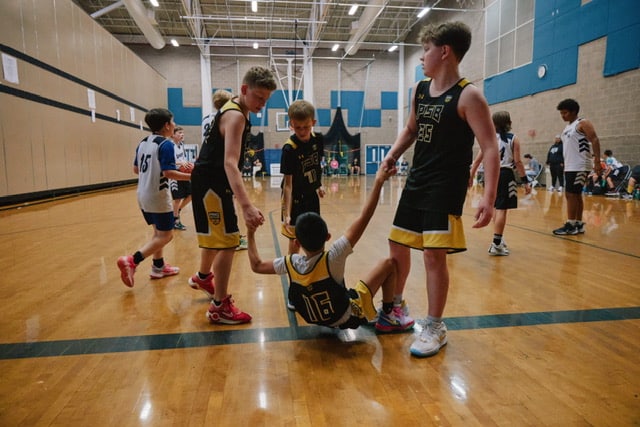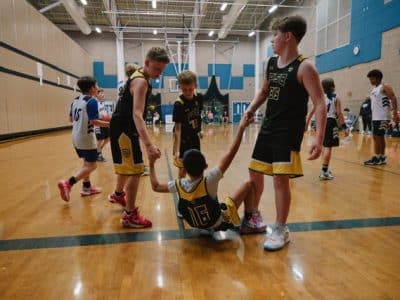
Let’s face it—losing is tough. Whether it’s a close game that slipped away or a long season with more losses than wins, defeat stings. But here’s the truth: losing is not just part of the game—it’s a vital part of growth.
No athlete, coach, or parent sets out to lose. But every competitive journey involves setbacks. The key is what happens next. How do we help young players bounce back? What do they learn from losing?
Here are four powerful tips to help athletes, parents, and coaches turn losses into long-term wins.
1. Shift the Focus: From Outcome to Process
When a team struggles, there’s usually more going on than just a scoreboard result. Maybe the players are inexperienced. Maybe the coach is still learning what works. Maybe the team hasn’t figured out how to close out games.
Rather than obsessing over the outcome, help players zoom out and evaluate the process. Are they getting better each week? Are they playing harder? Are they showing more poise under pressure?
It’s easy to react with frustration. But frustration—when handled the right way—can fuel growth. That’s where a growth mindset comes in. Remind kids that setbacks are part of progress. Ask them: Are you blaming others or looking inward to improve? Are you quitting, or are you learning to overcome?
That mindset shift is everything.
2. Celebrate Small Wins Relentlessly
Negativity is contagious—and on losing teams, it can take over fast. That’s why coaches and parents need to be intentional about finding positives, even in defeat.
Look for and celebrate small wins:
- Did the team communicate better?
- Were there fewer turnovers?
- Did a player show more confidence or hustle?
Then go a step further—connect those results to the work behind them. “You made more free throws because you’ve been practicing them the right way.” That’s how you reinforce effort, not just outcomes.
Positivity isn’t soft. It’s a sign of mental toughness. Staying hopeful and upbeat during hard times takes real strength—and kids are watching how adults respond. If we model resilience, they’ll learn it.
3. Over-Communicate When Things Get Tough
Losing can cause people to shut down. Players, coaches, and even parents sometimes withdraw, stop talking, and let frustration simmer. That’s when things spiral.
The solution? Clear, honest, and frequent communication.
Coaches: Keep parents informed. Let them know what you’re working on, what you’re seeing, and what the plan is to improve. Silence often gets misinterpreted as giving up.
Parents: Encourage your kids and stay connected with other families in a respectful, supportive way. Remind them (and yourself) that this is a shared experience—and that the team is growing, even if it’s not reflected in the win column yet.
The most successful teams—especially during losing seasons—are the ones where players, coaches, and parents stay unified.
4. Share Stories of Struggle and Comeback
Every athlete faces adversity. What separates the great ones is how they respond.
Remind your child they’re not alone. Tell stories of players and teams who lost, struggled, and came back stronger. One of our favorites?
In 2018, the University of Virginia became the first No. 1 seed in NCAA history to lose to a No. 16 seed. Brutal. But what happened next? They came back the very next year and won the national championship.
After that win, Coach Tony Bennett said:
“If you learn to use it right, adversity will buy you a ticket to a place you couldn’t have gone any other way.”
That’s the message we need to drive home. Losing hurts, but it’s also a ticket—if used correctly—to growth, grit, and greatness.
Final Thought: Be the Example
Before you criticize the coach, vent in the car ride home, or complain about teammates—pause. Ask yourself: Am I helping my child learn from this adversity the right way?
Growth happens when we stay steady during storms. Help your child keep showing up, keep working, and keep learning—even when the scoreboard says otherwise.
That’s the kind of winning that lasts far beyond the final buzzer.


 From Club to the Pros: What the 2025 WNBA Draft Reveals About the Future of Girls Youth Basketball
From Club to the Pros: What the 2025 WNBA Draft Reveals About the Future of Girls Youth Basketball »
»